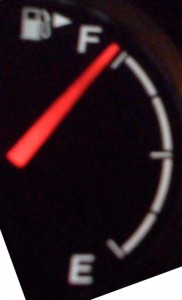New Study Finds US Fuel Consumption Peaked in 2006
 A study from the Associated Press has found that U.S. Drivers may have already passed their peak gasoline usage. The study concludes that in 2010 drivers use eight percent less gasoline than they did in 2006, a sign that overall gas consumption may be on the decline.
A study from the Associated Press has found that U.S. Drivers may have already passed their peak gasoline usage. The study concludes that in 2010 drivers use eight percent less gasoline than they did in 2006, a sign that overall gas consumption may be on the decline.
The study notes that the peak gasoline consumption numbers exclude the amount of ethanol in the mixes. Since 2006, the amount of ethanol in gasoline at the pump has risen greatly from five to ten percent, and at some stations, now 15%. A recent ruling from the EPA declared that 15% ethanol mixtures were safe for automobiles produced after 2007, a ruling some are hoping to see struck down.
A Generational Transition
By 2030, the study said, Americans will use 20 percent less gasoline than in 2010, mostly due to changing environmental regulations and the increasing efficiency of passenger grade automobiles. Analysts expect that such a reduction in US gasoline consumption will come even as more people take to their cars.
The data corresponds with a shift in American car shopping habits as new car buyers in 2010 settle into smaller, more fuel efficient automobiles.
In the years leading up to 2006, however, automotive shoppers were looking for heavier and bigger vehicles. General Motors and Ford each produced some of the most popular sport utility vehicles while only seven production vehicles on sales lots offered a hybrid option.
All cars produced in 2012 and for every year thereafter will have to reach the first new fuel efficiency targets since 1990. Each company will be responsible for having an average fleet efficiency of 30.1 miles per gallon compared to 27.5 in 1990. Just four year later, the requirements will rise again, this time to 35.5 miles per gallon.
But perhaps the most stringent policy change is a reclassification of SUVs and minivans, which were once considered to be trucks. In 2012, SUVs and minivans will be considered normal passenger vehicles.
Environmental Effects
Some environmental activists contend that while a decreasing reliance on gasoline is a positive change for the environment, new electric vehicles will displace gasoline use with the power grid. Virtually half of all electricity produced in the United States is produced by coal-burning power plants.










